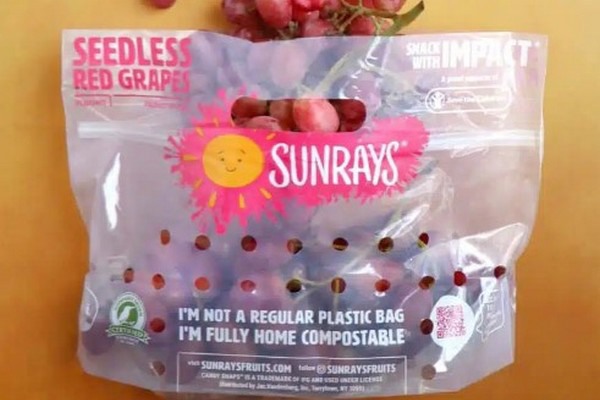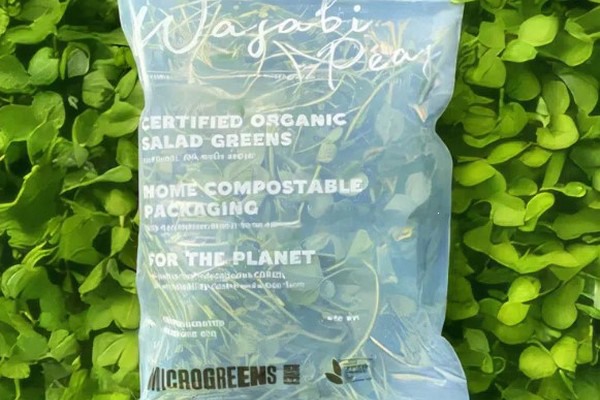It is clear that plastic waste is damaging to our planet and to human health. Scientists have found plastic waste almost everywhere on earth, where it disrupts ecosystems, contributes to climate change and threatens human health. “But, how to reduce this waste continues to be a major challenge, including in the fresh produce sector, which uses large amounts of plastic packaging,” says Daphna Nissenbaum, CEO and co-founder of TIPA.

Recycling is often not an option; as only 9% of plastic produced globally is recycled. While reducing the amount of packaging used can help, this is not always feasible, due to the need to keep produce clean, dry and bundled together for shipping and transport.
However, compostable packaging, including compostable plastic, is rapidly emerging as a suitable alternative. Made from compostable polymers that break down when combined with organic waste, like food scraps, compostable plastic leaves no waste behind when properly composed after use. In fact, under the right conditions, this material turns into agricultural compost, which can be used to nourish fields and gardens.
At the same time, compostable plastic offers many of the benefits of conventional plastic, including keeping products like fresh produce clean, safe and dry. Such packaging is becoming more attractive around the world. A recent survey revealed that consumer awareness about compostable packaging is growing, with 30% of consumers in the US and UK saying they prefer compostable packaging. Overall, the global compostable packaging market is growing about 8% a year.
Compostable packaging company TIPA Corp. is prepared to meet this growing demand and promote circular food systems says Nissenbaum. The company continuously expands the roster of partners and brands it works with to provide a variety of packaging solutions for fruit and vegetables, along with other categories of products, like dry food, baked goods and clothing. TIPA’s customers around the world range from small producers like Ceres, which runs a vertical urban farm in Australia to Sunrays, a producer of grapes sold in the United States.

Jess Holland, manager at Ceres’ Microgreen vertical urban farm, said TIPA’s compostable packaging helps further the company’s overall sustainability goals. “Microgreens not only provide fresh, locally grown greens to our community, but they also grow sustainably as they use little water and space.” Now, with the use of compostable packaging, “thousands of plastic packaging units will be prevented from entering landfills,” she says.
“TIPA’s packaging can be produced anywhere, on most existing facilities for manufacturing traditional plastic. This fabless model makes this solution widely accessible for local production, which in turn reduces the carbon footprint and costs for shipping packaging to those who want to use it. Like traditional plastic, compostable plastic packaging can be custom printed with brand logos, nutritional facts, and other information. As the demand for compostable packaging grows, TIPA continues to innovate, creating new durable and eco-friendly products, including zipper bags, baskets and netting, all of which can be composted,” explains Nissenbaum.
She concludes by saying there is still much work to be done to improve our planet, to ensure it can continue to produce enough food and other resources to support human life. “Compostable plastic offers a feasible way to reduce plastic waste in the fresh produce sector, moving closer to the goal of a more sustainable, healthy and natural food system.”
For more information:
Daphna Nissenbaum
TIPA
Email: [email protected]
www.tipa-corp.com
